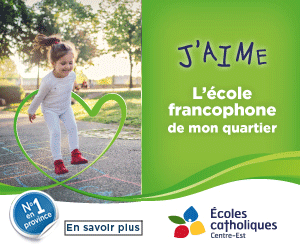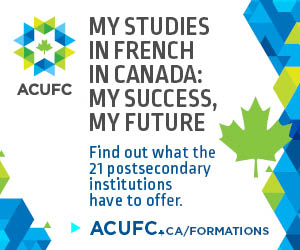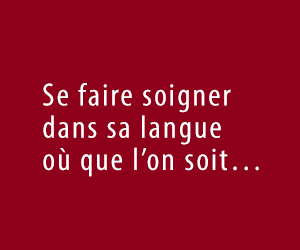The cultural environment
There's a lot going on!
I’ve always found the Francophone and Acadian cultures to be vibrantly alive — in particular, because the community is so diverse. I like to make new discoveries and learn from the experiences of others, whether through individual encounters, music, painting, drawing, writing or video. For me, keeping an open mind is the best way to broaden my vision of other communities’ realities and, more importantly, to grow and evolve in both my personal and professional life.
The need for a cultural rebalancing
Cultural consumption has certainly evolved over the last decade. According to Acadian singer-songwriter Caroline Savoie, as a result of major changes, the music industry has hit a brick wall. “There are fewer and fewer people attending events, far fewer albums sold, streaming sites that don’t pay artists adequately,” she says.
“There are fewer and fewer people attending events, far fewer albums sold, streaming sites that don’t pay artists adequately…”
Louis Paquin, a producer at Productions Rivard in Manitoba, adds that the Canadian Francophonie outside Quebec is very productive, but that most artists and their works achieve little recognition beyond the borders of their home provinces, and still less in the Quebec and international markets. He is convinced that breaking into the Francophone and French immersion markets in Canada could have a significant impact on our identity.
And what about the payments artists receive? I’m thinking of Pierre Lapointe and his rant against the Spotify business model at the ADISQ gala in October 2019. When I read an article on the subject on Radio-Canada’s website, I learned that in Canada, for every million streams, about $5,000 is paid to all rights holders, the distributor, the record company, etc. But for the same number of streams, the royalties paid to the artists themselves amount to only between $500 and $700. Startling, isn’t it? It’s no wonder that the Quebec singer-songwriter took the opportunity to demand government action to protect artists and promote better pay.
Mélanie Joly
Minister of Economic Development and Official Languages

Let's be proud to be Francophone!
Yes, despite everything, there have been positive advances in culture. It’s important to acknowledge that! Caroline Savoie agrees. “There’s more and more high-quality French-language music across the country. I’m constantly discovering new Francophone artists, and I sense in them a vibrancy and a drive to continually create themselves through music; but, above all, I sense that they are proud to sing in French. And that inspires me.”
Fransaskois rapper Shawn Jobin is an example. He works very hard to conquer the Quebec and Ontario markets. In 2019, he performed in a number of venues in these provinces, including the National Arts Centre in Ottawa in October and the Petit Champlain in Quebec City in November. He believes this is a great way to open doors for Francophone rap in the future.
In Moncton, thanks to Mathieu Hébert, the visual arts community can now count on The Acorn Studio, a new art gallery that swells the ranks of the few existing establishments and offers a venue for artists from different regions of the Maritimes to exhibit their works. No sooner had Mathieu Hébert announced the opening of his gallery than artists from all over New Brunswick contacted him to exhibit their work there.
And what can we say about the world of humour, which has gained in popularity in recent years?
I’m convinced of the contribution made by the web and the many comedy evenings that have sprung up. The comedy tour and the comedy training sessions that are held in a few provinces by the Rendez-vous de la Francophonie are good examples. In Ontario, the LOL Contest has become very popular and allows young Franco-Ontarian comedians to take to the stage at the big Just for Laughs Festival in Montreal. And one of the Franco-Ontarians who have succeeded in this field is a native of Eastern Ontario, Katherine Levac, whom you know. Her charm and talent have made her the darling of Quebec and Ontario.
So many talents to discover
I think one of the best ways to discover Francophone Canada is to attend festivals and events celebrating the Francophonie. I’m thinking of the World Acadian Congress in the Maritimes, which brings together Acadians and citizens from around the world. In Quebec, I think of festivals like the Osheaga festival in Montreal. It’s the largest music and arts festival in Canada. And then there’s the Franco Festival, a musical and multicultural event in Alberta.
As a deaf person who hears with a cochlear implant, I would like to take this opportunity to congratulate the organizers of festivals and events held in public places who are making efforts to increase accessibility to culture for people with hearing problems, whether by making hearing aids available or by providing on-site interpreters.
Finally, open your mind to cultural diversity! I’m convinced this is the best way to advance, and above all, to become aware of the importance of working together to review our different regulatory frameworks in order to bring about a culture that is adaptable.



